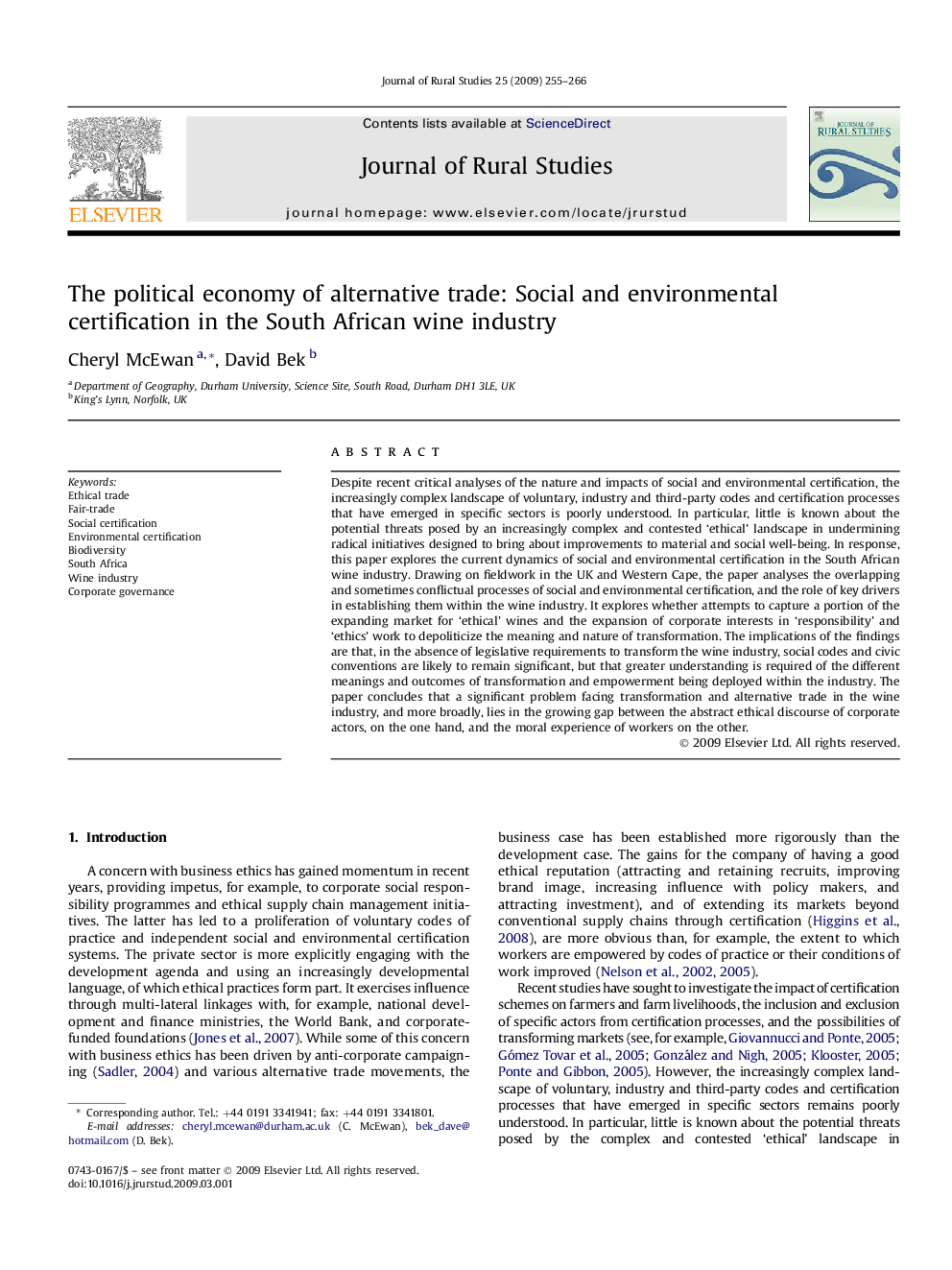| Article ID | Journal | Published Year | Pages | File Type |
|---|---|---|---|---|
| 92644 | Journal of Rural Studies | 2009 | 12 Pages |
Despite recent critical analyses of the nature and impacts of social and environmental certification, the increasingly complex landscape of voluntary, industry and third-party codes and certification processes that have emerged in specific sectors is poorly understood. In particular, little is known about the potential threats posed by an increasingly complex and contested ‘ethical’ landscape in undermining radical initiatives designed to bring about improvements to material and social well-being. In response, this paper explores the current dynamics of social and environmental certification in the South African wine industry. Drawing on fieldwork in the UK and Western Cape, the paper analyses the overlapping and sometimes conflictual processes of social and environmental certification, and the role of key drivers in establishing them within the wine industry. It explores whether attempts to capture a portion of the expanding market for ‘ethical’ wines and the expansion of corporate interests in ‘responsibility’ and ‘ethics’ work to depoliticize the meaning and nature of transformation. The implications of the findings are that, in the absence of legislative requirements to transform the wine industry, social codes and civic conventions are likely to remain significant, but that greater understanding is required of the different meanings and outcomes of transformation and empowerment being deployed within the industry. The paper concludes that a significant problem facing transformation and alternative trade in the wine industry, and more broadly, lies in the growing gap between the abstract ethical discourse of corporate actors, on the one hand, and the moral experience of workers on the other.
